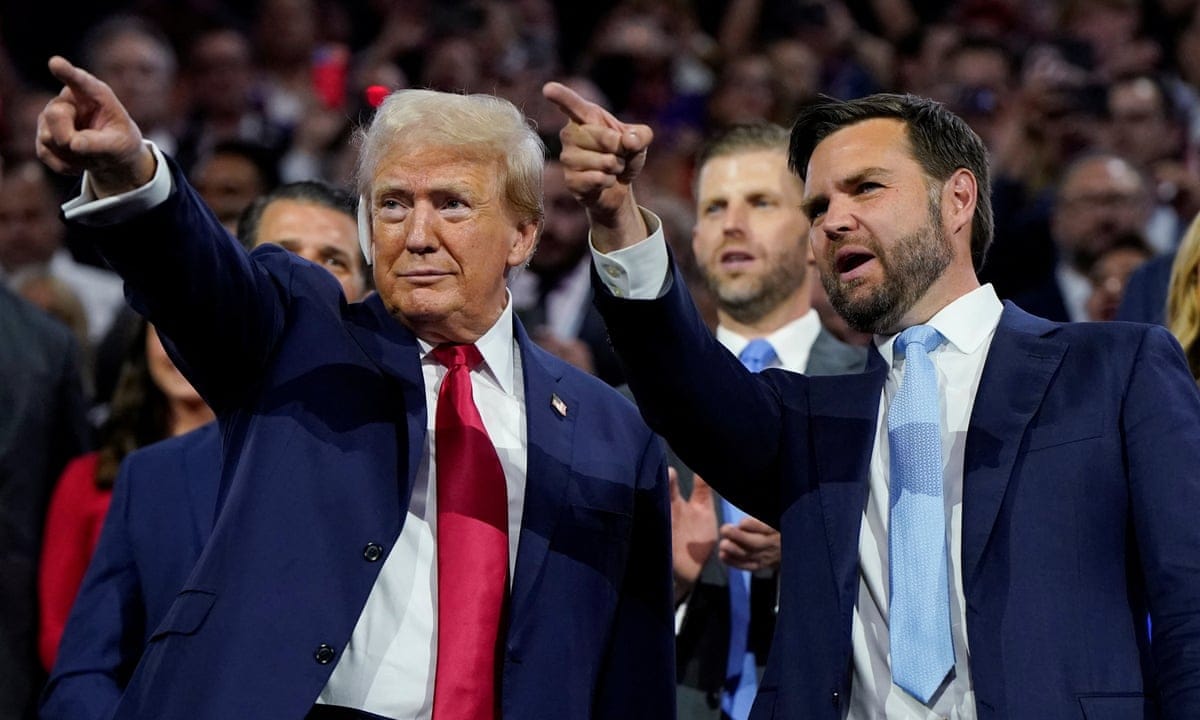Since the weekend's polls suggest Donald Trump narrowly avoided an attempt on his life in Pennsylvania, which may have strengthened his campaign for re-election. Despite receiving limited attention thus far, Trump 2.0 could potentially impact not only the US but also the global economy.
As stability becomes a crucial need following recent years of volatility, many wonder how further political shifts might influence economic conditions worldwide. A second term for Donald Trump in November may disrupt this delicate balance and introduce new challenges.
Globally, there is concern over what the next significant economic shock could be after recovering from pandemic-induced instability and geopolitical tensions. With Trump's return to power as a potential outcome of upcoming elections, these concerns become more pronounced.
The International Monetary Fund (IMF) recently discussed the risks associated with economic policy volatility during election cycles, specifically mentioning the US without directly naming it. The IMF highlighted that trade tariffs and industrial policies could lead to detrimental consequences such as cross-border spillover effects, retaliation, and a potential race to the bottom in global economies.
Donald Trump's economic strategy has been labeled as highly protectionist and inconsistent, which poses significant threats: possible trade wars with China, increasing US inflation due to higher import costs, and more restrictive immigration policies impacting labor supply and wage pressures. Additionally, a diplomatic retreat by the US under Trump could result in expensive commodities and heightened financial market instability.
In contrast, President Joe Biden has implemented infrastructure improvements and green growth initiatives through the Inflation Reduction Act while maintaining relatively stable economic conditions compared to other developed nations during inflationary times. However, despite these efforts, voters may still perceive a decline in their personal financial situation due to broader economic trends, making it challenging for Biden's campaign.
While the US economy remains resilient, President Biden faces difficulties countering Trump's narrative of national economic deterioration. The Federal Reserve may consider interest rate cuts in September, but by then, these actions might not be sufficient to sway voters who question Biden's competency and ability to lead effectively during turbulent times.
The key concern for voters is whether an alternative Democratic candidate could shift the focus of the campaign towards celebrating recent economic successes under President Biden or highlighting Trump's character flaws and policies, potentially improving Democrats' chances in the election. The potential outcome suggests that it would likely benefit their cause to present a different choice for voters seeking leadership with confidence during uncertain times.
Read next

Ryanair plane had only six minutes of fuel upon Manchester landing, records show
Flight Narrowly Avoids Disaster After Storm Diversion
An inquiry has been launched after a Ryanair flight, struggling against severe winds during storm Amy last week, landed at Manchester Airport with only six minutes’ worth of fuel remaining.
The aircraft had been transporting passengers from Pisa, Italy, to Prestwick, Scotland, on

"Qantas customer data for 5 million exposed as hackers release info post-ransom deadline"
Hackers Leak Personal Data of 5 Million Qantas Customers on Dark Web
A cybercriminal group has released personal records of 5 million Qantas customers on the dark web after the airline did not meet their ransom demand.
The breach is part of a larger global incident affecting over 40 companies,

Investors flee record-high UK stocks as EU set to hike steel tariffs
Investors Withdraw Record Sums from Equity Funds Amid High Market Valuations
Data reveals that investors in the UK have withdrawn an unprecedented amount of money from equity funds over the past three months, driven by concerns over soaring stock market valuations.
According to the latest figures from Calastone, the largest

